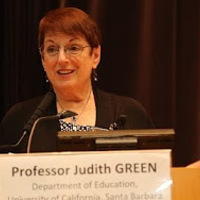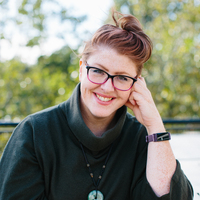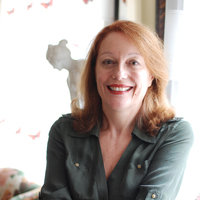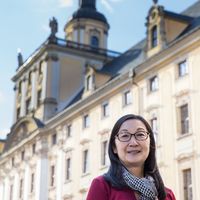Message to visitors by Maria Nikolajeva
Books by Maria Nikolajeva

A collection of newly-commissioned essays tracing cutting-edge developments in children’s litera... more A collection of newly-commissioned essays tracing cutting-edge developments in children’s literature research
Time has passed since ‘having a PhD in children’s literature’ was a funny joke in You’ve Got Mail. Children’s literature research is now one of the most dynamic fields of literary criticism and of education, and has a bright future ahead – as children’s writers and publishers invent yet more forms of literature for young people, and researchers find yet more sophisticated ways of exploring them. This collection takes informed and scholarly readers to the utmost frontier of children’s literature criticism, from the intricate worlds of children’s poetry, picturebooks and video games to the new theoretical constellations of critical plant studies, non-fiction studies and big data analyses of literature.
Key Features
Features the most recent directions in children's literature theory and criticism
Introduces the leading international scholars in the field as well as new emerging scholars
Offers a wide range of interdisciplinary approaches, including a mixture of empirical and theoretical research, and analyses at the intersection of education and literary studies
Third, revised edition of the highly successful handbook on children's literature from a narratol... more Third, revised edition of the highly successful handbook on children's literature from a narratological perspective. After a theoretical introduction, chapters include Plot, Theme, Setting, Character, Narration and Temporality. Textual analysis is based on a wide range of international titles.

How does reading fiction affect young people? How can they transfere fictional experience into re... more How does reading fiction affect young people? How can they transfere fictional experience into real life? Why do they care about fictional characters? How does fiction enhance young people's sense of selfhood? Supported by cognitive psychology and brain research, this ground-breaking book is the first study of young readers' cognitive and emotional engagement with fiction. It explores how fiction stimulates perception, attention, imagination and other cognitive activity, and opens radically new ways of thinking about literature for young readers. Examining a wide range of texts for a young audience, from picturebooks to young adult novels, the combination of cognitive criticism and children’s literature theory also offers significant insights for literary studies beyond the scope of children’s fiction. An important milestone in cognitive criticism, the book provides convincing evidence that reading fiction is indispensable for young people’s intellectual, emotional and social maturation.

"Offering a wide range of critical perspectives, this volume explores the moral, ideological and ... more "Offering a wide range of critical perspectives, this volume explores the moral, ideological and literary landscapes in fiction and other cultural productions aimed at young adults. Topics examined are adolescence and the natural world, nationhood and identity, the mapping of sexual awakening onto postcolonial awareness, hybridity and trans-racial romance, transgressive sexuality, the sexually abused adolescent body, music as a code for identity formation, representations of adolescent emotion, and what neuroscience research tells us about young adult readers, writers, and young artists.
Throughout, the volume explores the ways writers configure their adolescent protagonists as awkward, alienated, rebellious and unhappy, so that the figure of the young adult becomes a symbol of wider political and societal concerns. Examining in depth significant contemporary novels, including those by Julia Alvarez, Stephenie Meyer, Tamora Pierce, Malorie Blackman and Meg Rosoff, among others, Contemporary Adolescent Literature and Culture illuminates the ways in which the cultural constructions 'adolescent' and 'young adult fiction' share some of society's most painful anxieties and contradictions.
Reviews: 'Contemporary Adolescent Literature and Culture is a theoretically rich collection of essays that gathers together the most compelling and provocative issues currently at play in the study of adolescent literature. Perspectives including feminism, post-colonialism, cognitive linguistics, eco-poetics, genre study, and psychoanalysis work together to demonstrate both how complex adolescent literature is and how much the field has to contribute to the expansion of post-structural literary criticism. The essays are smart, innovative, and sophisticated, making the collection one of the most significant contributions yet to appear in the field.'
Roberta Seelinger Trites, Illinois State University, USA
This title is also available as an ebook, ISBN 978-1-4094-3989-9"











Uploads
Message to visitors by Maria Nikolajeva
Books by Maria Nikolajeva
Time has passed since ‘having a PhD in children’s literature’ was a funny joke in You’ve Got Mail. Children’s literature research is now one of the most dynamic fields of literary criticism and of education, and has a bright future ahead – as children’s writers and publishers invent yet more forms of literature for young people, and researchers find yet more sophisticated ways of exploring them. This collection takes informed and scholarly readers to the utmost frontier of children’s literature criticism, from the intricate worlds of children’s poetry, picturebooks and video games to the new theoretical constellations of critical plant studies, non-fiction studies and big data analyses of literature.
Key Features
Features the most recent directions in children's literature theory and criticism
Introduces the leading international scholars in the field as well as new emerging scholars
Offers a wide range of interdisciplinary approaches, including a mixture of empirical and theoretical research, and analyses at the intersection of education and literary studies
Throughout, the volume explores the ways writers configure their adolescent protagonists as awkward, alienated, rebellious and unhappy, so that the figure of the young adult becomes a symbol of wider political and societal concerns. Examining in depth significant contemporary novels, including those by Julia Alvarez, Stephenie Meyer, Tamora Pierce, Malorie Blackman and Meg Rosoff, among others, Contemporary Adolescent Literature and Culture illuminates the ways in which the cultural constructions 'adolescent' and 'young adult fiction' share some of society's most painful anxieties and contradictions.
Reviews: 'Contemporary Adolescent Literature and Culture is a theoretically rich collection of essays that gathers together the most compelling and provocative issues currently at play in the study of adolescent literature. Perspectives including feminism, post-colonialism, cognitive linguistics, eco-poetics, genre study, and psychoanalysis work together to demonstrate both how complex adolescent literature is and how much the field has to contribute to the expansion of post-structural literary criticism. The essays are smart, innovative, and sophisticated, making the collection one of the most significant contributions yet to appear in the field.'
Roberta Seelinger Trites, Illinois State University, USA
This title is also available as an ebook, ISBN 978-1-4094-3989-9"
Time has passed since ‘having a PhD in children’s literature’ was a funny joke in You’ve Got Mail. Children’s literature research is now one of the most dynamic fields of literary criticism and of education, and has a bright future ahead – as children’s writers and publishers invent yet more forms of literature for young people, and researchers find yet more sophisticated ways of exploring them. This collection takes informed and scholarly readers to the utmost frontier of children’s literature criticism, from the intricate worlds of children’s poetry, picturebooks and video games to the new theoretical constellations of critical plant studies, non-fiction studies and big data analyses of literature.
Key Features
Features the most recent directions in children's literature theory and criticism
Introduces the leading international scholars in the field as well as new emerging scholars
Offers a wide range of interdisciplinary approaches, including a mixture of empirical and theoretical research, and analyses at the intersection of education and literary studies
Throughout, the volume explores the ways writers configure their adolescent protagonists as awkward, alienated, rebellious and unhappy, so that the figure of the young adult becomes a symbol of wider political and societal concerns. Examining in depth significant contemporary novels, including those by Julia Alvarez, Stephenie Meyer, Tamora Pierce, Malorie Blackman and Meg Rosoff, among others, Contemporary Adolescent Literature and Culture illuminates the ways in which the cultural constructions 'adolescent' and 'young adult fiction' share some of society's most painful anxieties and contradictions.
Reviews: 'Contemporary Adolescent Literature and Culture is a theoretically rich collection of essays that gathers together the most compelling and provocative issues currently at play in the study of adolescent literature. Perspectives including feminism, post-colonialism, cognitive linguistics, eco-poetics, genre study, and psychoanalysis work together to demonstrate both how complex adolescent literature is and how much the field has to contribute to the expansion of post-structural literary criticism. The essays are smart, innovative, and sophisticated, making the collection one of the most significant contributions yet to appear in the field.'
Roberta Seelinger Trites, Illinois State University, USA
This title is also available as an ebook, ISBN 978-1-4094-3989-9"
The ongoing debate about the paucity of translated books in the UK encourages publishers and book promoters to widen British children's horizons by exposing them to literature from foreign cultures. But if publishers are looking for a new Pippi they are looking in the wrong place. Contemporary Swedish children's and young adult literature has gone a long way from the idyllic Småland of Astrid Lindgren's works. They reflect the harsh reality of today's young Swedes, the anxiety and frustration of the twenty-first century.
This talk explores some recent Swedish young adult novels, discussing them against the common British cultural image of Nordic children's literature illustrated by Pippi, the Moomins and Mrs Pepperpot.
The ongoing debate about the paucity of translated books in the UK encourages publishers and book promoters to widen British children's horizons by exposing them to literature from foreign cultures. But if publishers are looking for a new Pippi they are looking in the wrong place. Contemporary Swedish children's and young adult literature has gone a long way from the idyllic Småland of Astrid Lindgren's works. They reflect the harsh reality of today's young Swedes, the anxiety and frustration of the twenty-first century.
This talk will explore some recent Swedish young adult novels, discussing them against the common British cultural image of Nordic children's literature illustrated by Pippi, the Moomins and Mrs Pepperpot.
In contrast, the immediate availability of newly published books in digital editions affects current canon formation, since the existence of a digital version contributes to the commercial value of the book, its circulation to a maximum of readers, and, albeit to a lesser degree, the attention it receives from the critics and practitioners. By extension, texts that only appear in digital versions, may in the future create a specific, parallel canon of their own. (The vast area of self-publishing will not be discussed).
The paper does not aspire to offer a comprehensive overview of the area, since it is not only immense, but changing day by day. Instead it will raise some fundamental questions about re-conceptualising canons, including national canons, academic canons, school canons, and popular canons, in the age when the role of the audience in canon formation is more prominent than at any other time in human history.